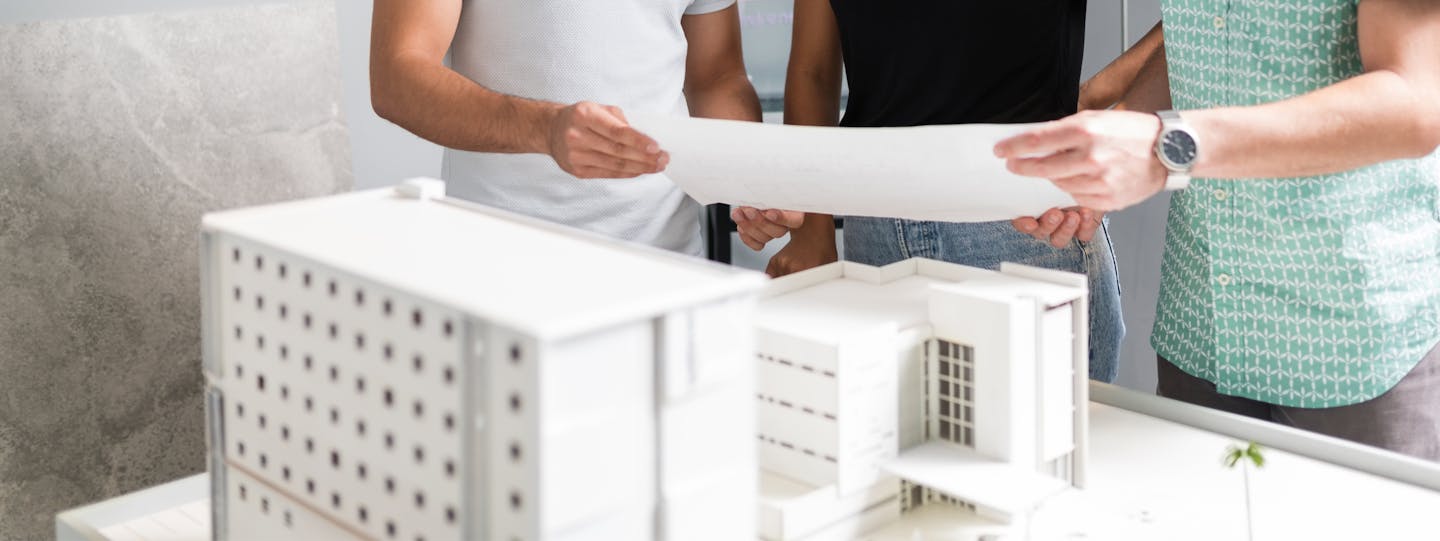
Quick guide to buying property off-the-plan
Buying a property off the plan means signing a contract to purchase a property that hasn’t been built yet, or is currently under construction.
Because there isn’t a physical property to inspect, you base your decision to buy on the plans and renderings of how the property might look and the other information about the plan from the builder.
For both owner occupiers and investors, this option can provide a buyer with some great opportunities. However, there can also be some additional risks that should be taken into consideration when buying a property site unseen.
You could pick up a new unit at a good price in a growing market, or you could end up waiting for a home for years as construction drags on. You can buy a property off the plan at an auction or for a fixed price.
Some of the benefits of buying off the plan can include:
- Locking in a good price in a rising market
- In a rising market the value of the property can continue to increase during the building process
- If you get in early you can often choose from a range of available properties within the same development.
- You will usually be able to customise some of the interior finishes in the property you purchase.
- The initial cost to buy is generally low, as you usually only need to provide a 10% deposit
- Because you usually have months or years before settlement, you have plenty of time to arrange your finance or boost your savings.
- Stamp Duty concession that are being offered only to off the plan purchasers
- Builders may offer incentives to entice a buyer to commit
- If you’re buying your first home you may be eligible for the first home buyers grant and a reduction in stamp duty.
If you are thinking of buying a property off the plan there are some things you should be cautious about. These include:
- Construction delays for which you may or may not be compensated
- The inability to actually walk through and view the entirety of the home you are buying, the end product may fall short of your expectations
- There may be provisions in your contract that allow the builder to make substitutions to materials and products being used in the building and final details of the home
- The market have dropped in the time it takes to complete construction, leaving you with a property that’s valued lower than you expected. This may have significant consequences if you were planning on selling
- Your lender will value the property at completion, and if final value is less than you expected you may face issue with finance due a lower loan to value ration (LVR). The ripple on effect is that you may not be approved for the full amount you had pre-approved, and you may require Lenders Mortgage Insurance which is an additional up-front cost
- Your personal and financial circumstances may change before your property is complete, leaving you committed to purchasing a property that no longer suits your circumstances
- In the event your property isn’t completed on time and you settle the sale of the property you currently live in, you may need to find temporary accommodation, meaning that you’re moving twice.
One of the greatest risks when buying off the plan is that the builder becomes bankrupt, leaving you with no property. Before making a decision about buying a property off the plan you should spend some time researching the developer and builder, to make sure they have a good track record. While your deposit will remain secure in a trust account even if the builder becomes insolvent, you may have missed opportunities to purchase elsewhere.
Before you enter into an off the plan contract you should seek advice from a lawyer or conveyancer so you can understand the costs and risks. Your lawyer or conveyancer will help you:
- Review the contract and request any alterations to the terms
- What your cooling off period is, and any penalties if you do decide to cancel the contract
- What protection is available in the event the builder becomes bankrupt before completion of the project
- What is involved in invoking the sunset clause
- Understanding the notification requirements if the builder makes any changes in the specifications of the project
- The disclosure statements
- Understand what the process is for rectifying any building defects once the construction is complete
- Your eligibility for the first home buyers grant and stamp duty concessions.
In addition, you should take the time to do your research before entering into an off the plan contract. We suggest that you:
- Do the due diligence on the developer and builder you will be working with. Part of that research should include speaking to people who have worked with them before, reviewing their track record on completed projects and reviewing their warranties and guarantees
- Ask the builder for addresses of recently completed properties so you can do a drive by to inspect the quality of workmanship. If you have the chance, speak to owners in that building to find out if they are happy with the build and whether there were any defects issues
- View any models and visit any display units that are available
- Research recent sales in the neighbourhood, comparing property values of the surrounding homes to the new property to ensure you are not overpaying
- Consult a lawyer or conveyancer who deals in the contracts of off property purchases on a regular basis.
If you take the necessary steps to fully understand the pros and cons of off the plan purchasing, you can have every confidence that you purchase can go smoothly. Contact our experienced property lawyers and conveyancers today to discuss your purchase before signing the contract.
